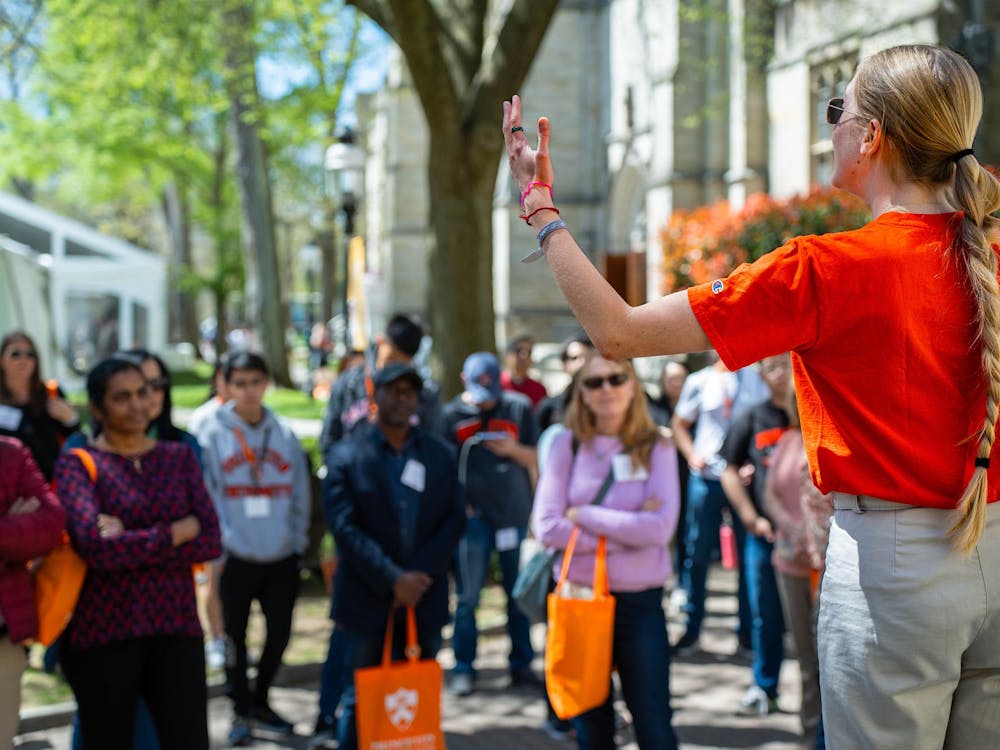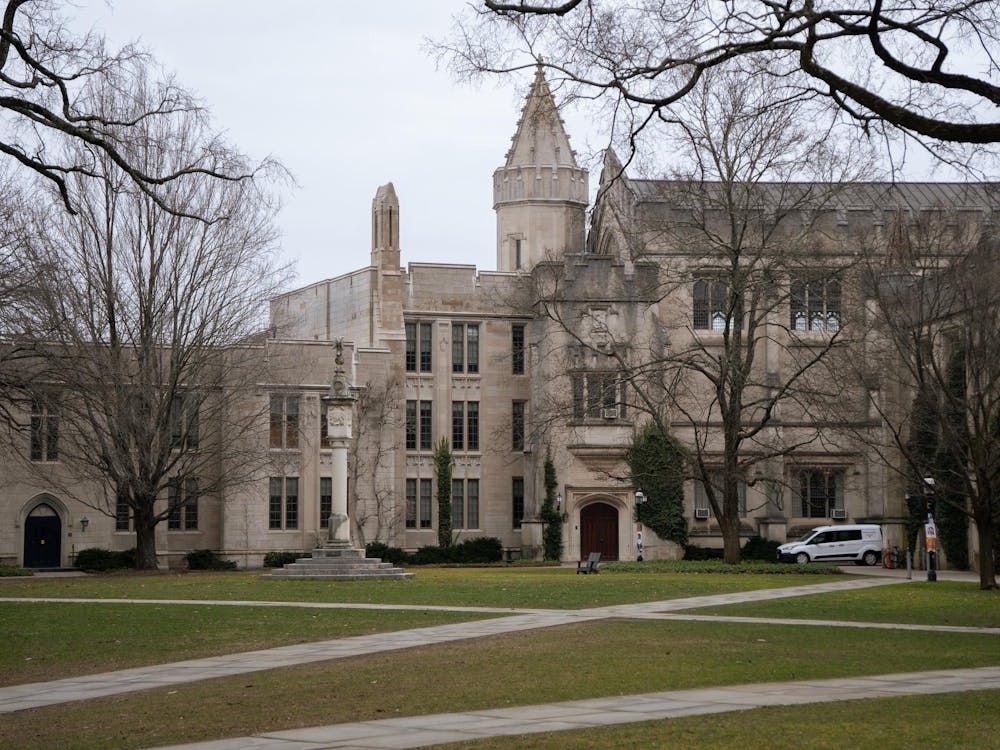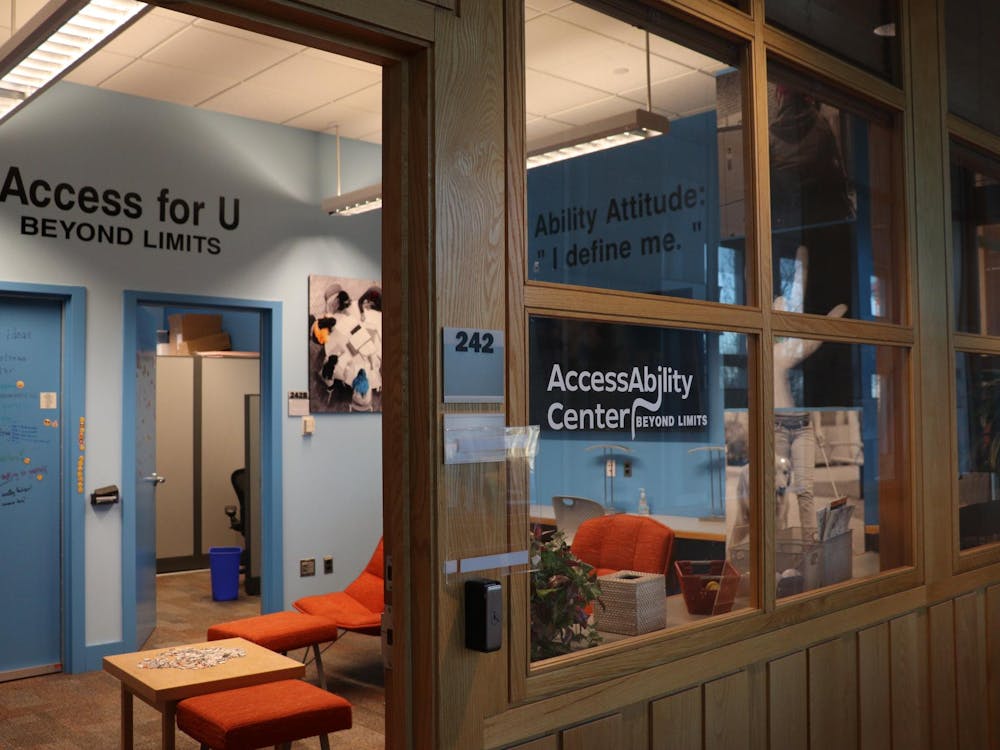The psychology department at the University opened three new research laboratories in computational neuroscience, social neuroscience and developmental psychology in the past two years.
Two of the labs, the Princeton Baby Lab and the Princeton Social Neuroscience Lab, were created at the beginning of this academic year.
The Princeton Baby Lab is a joint initiative created by psychology professors Casey Lew-Williams and Lauren Emberson.
“I primarily study language in the first years of life, and she primarily studies perception in the first years of life, but all with the focus on understanding how learning gets off the ground in the first place,” Lew-Williams explained.
Lew-Williams noted an increasing desire in the psychology department to have the perspective of developmental researchers to better understand the origins of how adults process information in memory, attention and social interaction led the University to hire experts in the field.
Psychology department chair Elizabeth Gould deferred comment to assistant chair Nicholas Turk-Browne. Turk-Browne declined to comment.
Lew-Williams lab’s projects focus primarily on the basic science side of learning but also focuses on more translational, or applied projects, he noted. His research projects include how infants break into language in the first place, combining sounds and syllables into words and sentences and coming to understand and produce these structures, he said.
“We always have our eye on what our finding might mean for a particular population that is at risk — for example, children in poverty, or children born prematurely, or children with a developmental disorder of some kind,” Lew-Williams said.
Emberson said her projects focus on memory and perception in babies and the interrelation of these two elements. She explained that her lab combines behavioral methods, such as camera and eye trackers, with neuroimaging technologies, such as near-infrared spectroscopy.
Another new lab, the Princeton Social Neuroscience Lab, seeks to answer important social questions by drawing from disciplines including neuroscience, social psychology, behavioral economics and machine learning, according to psychology professor Diana Tamir, who created and runs the lab.
Some of the lab’s main research questions include how people bridge the subjective world they live in with their social world and how people, who are inherently constrained to their own limited perspectives, accomplish things in a social world, Tamir explained. She added that the lab uses a variety of behavioral experiments, functional neuroimaging and linguistic analyses and machine learning via social media to gather data.
Meghan Meyer, a postdoctoral researcher in the lab, noted that one of its main research projects is the study of imagination expertise from the neuroscience perspective.

The lab is scanning highly successful writers, artists, actors, politicians and leaders to analyze their brains in the process of imagining different scenarios, Meyer said.
“The approach we’re taking [is] to look at people who have expertise in their ability to imagine things or their ability to think about people’s minds,” Tamir said.
Both the Princeton Social Neuroscience Lab and the Baby Lab place an emphasis in undergraduate student involvement.
Tamir’s lab is marked by collaboration with all researchers, including undergraduate students, at a variety of expertise levels, Meyer said, explaining that the undergraduates attend lab meetings, contribute ideas and get feedback from postdoctoral fellows, Tamir and their peers.
“I think that’s really unique, not necessarily just to this lab, but to Princeton,” Meyer added.
Both Lew-Williams and Emberson noted the many opportunities for undergraduates to research and learn in their lab. They explained that students in their lab benefit from thorough involvement in a project from start to finish, inclusion in lab meetings and exposure to a diverse array of methods, from behavioral experiments to coding and data analysis.
Julie Kwong ’16, a senior thesis student in the Baby Lab, said that her experience has been immensely valuable as a foundation for research experience. Alissa Wagner ’16, another senior thesis student in the Baby Lab focusing on math learning in children, noted the “amazing” atmosphere of the lab and its interaction with the community.
The department also hired psychology professor Jonathan Pillow, who in 2014 created the Pillow Lab, a computational neuroscience and machine learning lab. As the capacity to record more neurons and collect more data grows, there is an increasing need for statistical methods to process and analyze this information, Pillow said.
“One key aspect of our lab is that it’s highly interdisciplinary, highly collaborative. We don’t collect our own data at all,” he said.
Instead, the group collaborates with other research groups or labs, especially those at the University, to analyze the data they collect using innovative methods, Pillow said.
Katherine Lee ’17, an undergraduate researcher in the Pillow Lab, said the lab is particularly well-designed for research, both physically and mentally, providing organization, collaboration and support.
“We have weekly lab meetings to read other articles that we might not have [heard] about and hear about what everyone else in the group is working on, which is really neat and also helps with collaboration a lot because you know who to ask to answer your questions — you know who has done similar work in the past,” she added.
Pillow added that the lab is unique in that it acts as a link at the interface between machine learning and neuroscience.
“We understand the kind of mathematical and statistical techniques that are used to model data, but we also understand neuroscience literature. We’re ultimately neuroscientists who want to figure out how the brain works,” Pillow added.
He also noted that the use of machine learning to extract more information from data or to process bigger data sets is a revolution changing many different sciences, and that the study of psychology is at a critical time because the ability to collect data from brains is advancing faster than it ever has before.
Correction: Due to an editing error, an earlier version of this article misstated the lab in which Katherine Lee '17 works. She works in the Pillow Lab. The 'Prince' regrets the error.








